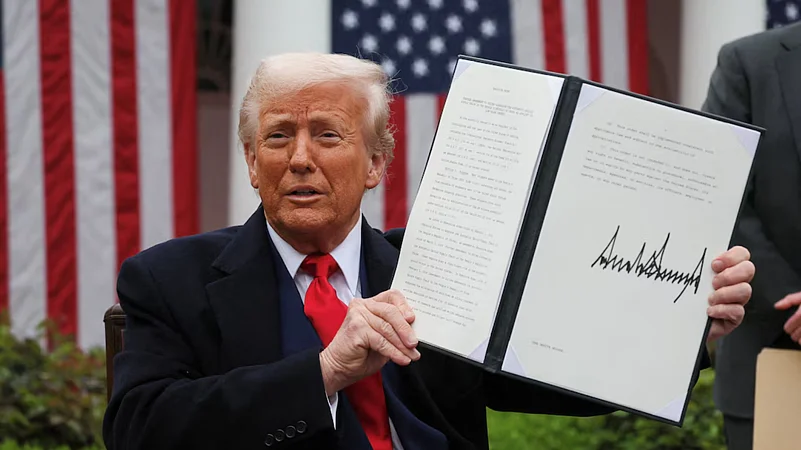Global financial markets were rocked this week as intensifying trade tensions between the United States and China triggered the sharpest selloff on Wall Street since the early days of the pandemic. In just two trading sessions, the S&P 500 dropped 6 per cent, erasing more than $5 trillion in value, according to Bloomberg. The Nasdaq Composite fell over 20 per cent from its December highs, officially entering bear market territory.
Investor Basant Maheshwari summed up the mood in a post on X, “America’s Liberation Day turned out to be Judgement Day, where everyone attending is supposed to die first.” He added, “Trump isn’t done yet,” a stark commentary on the unfolding crisis linked to mounting economic retaliation between the world’s two largest economies.
The latest market rout followed a dramatic policy move out of Washington. Within 48 hours, President Donald Trump imposed a new round of tariffs, lifting duties on Chinese goods to levels not seen in more than a century. China fired back with its own sweeping measures, announcing a 34 per cent tariff on all American imports, according to the Chinese Ministry of Commerce.
The losses spread quickly across asset classes. Oil prices slid 10 per cent, with Brent crude settling around $62 per barrel, the lowest in four years. Semiconductor stocks tumbled 7 per cent, dragging the Philadelphia Semiconductor Index down 40 per cent from its peak. The popular ‘Magnificent Seven’ ETF fell 10 per cent in what analysts described as its worst week on record.
Despite growing pressure, Federal Reserve Chair Jerome Powell stopped short of promising immediate support, instead warning of “elevated risks” while maintaining the current stance. Still, markets are now pricing in four rate cuts in 2025, with the first expected as soon as June, according to CME Group data.
Analysts are warning that the financial damage may be far from over. J.P. Morgan called the tariff hike the “biggest U.S. tax rise since 1968,” and projected an increased likelihood of a global recession. Barclays forecasts a GDP contraction in Q4, while Citigroup estimates a 1 percentage point hit to economic growth in both China and the Eurozone.
Volatility surged as investors scrambled to reposition. The VIX Index, a key gauge of market fear, spiked to its highest level in five years. Even in Europe, traditionally stable assets showed signs of stress, Swiss government bonds briefly dipped into negative yield territory, reflecting investor anxiety at a rare level.











